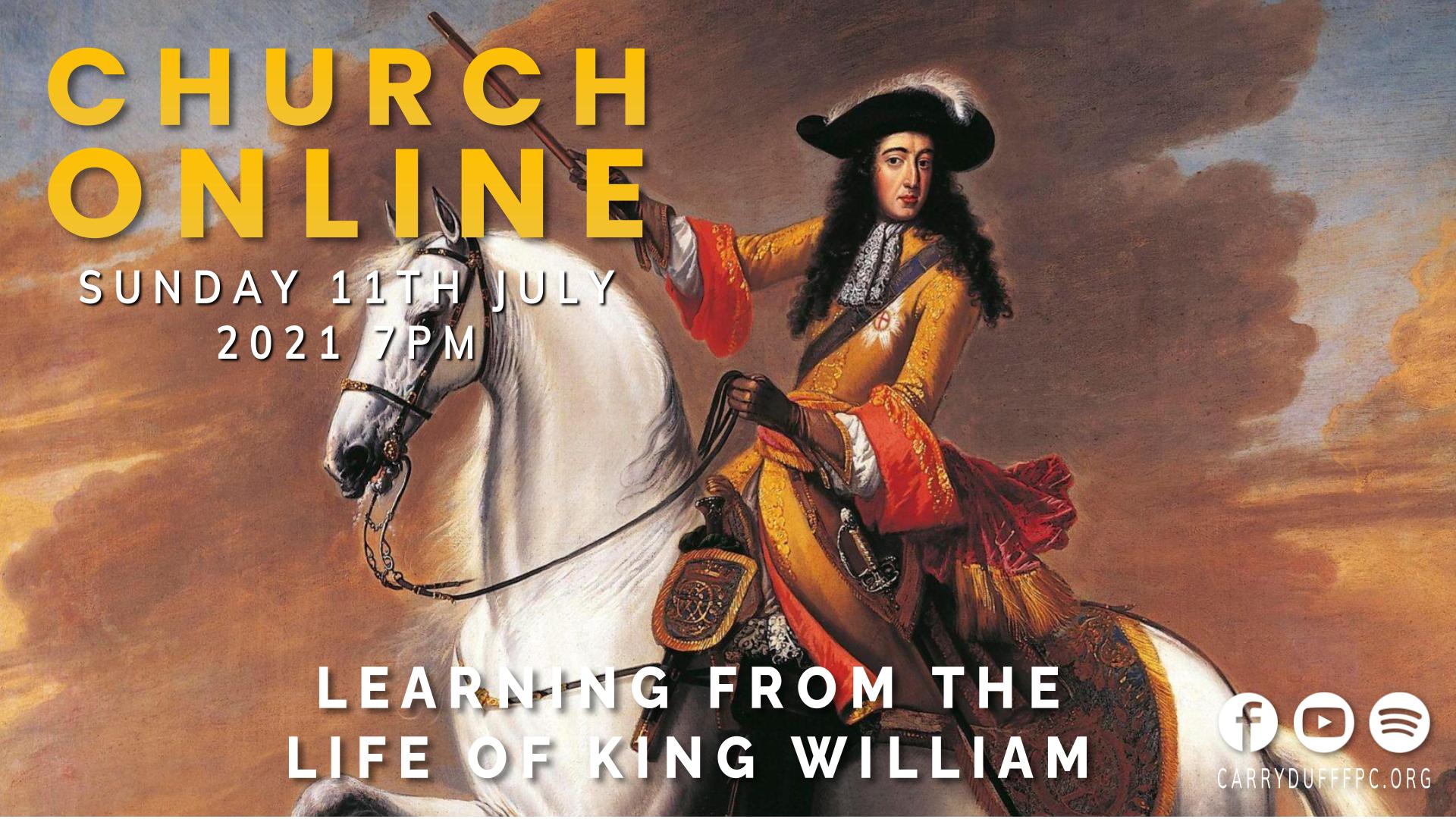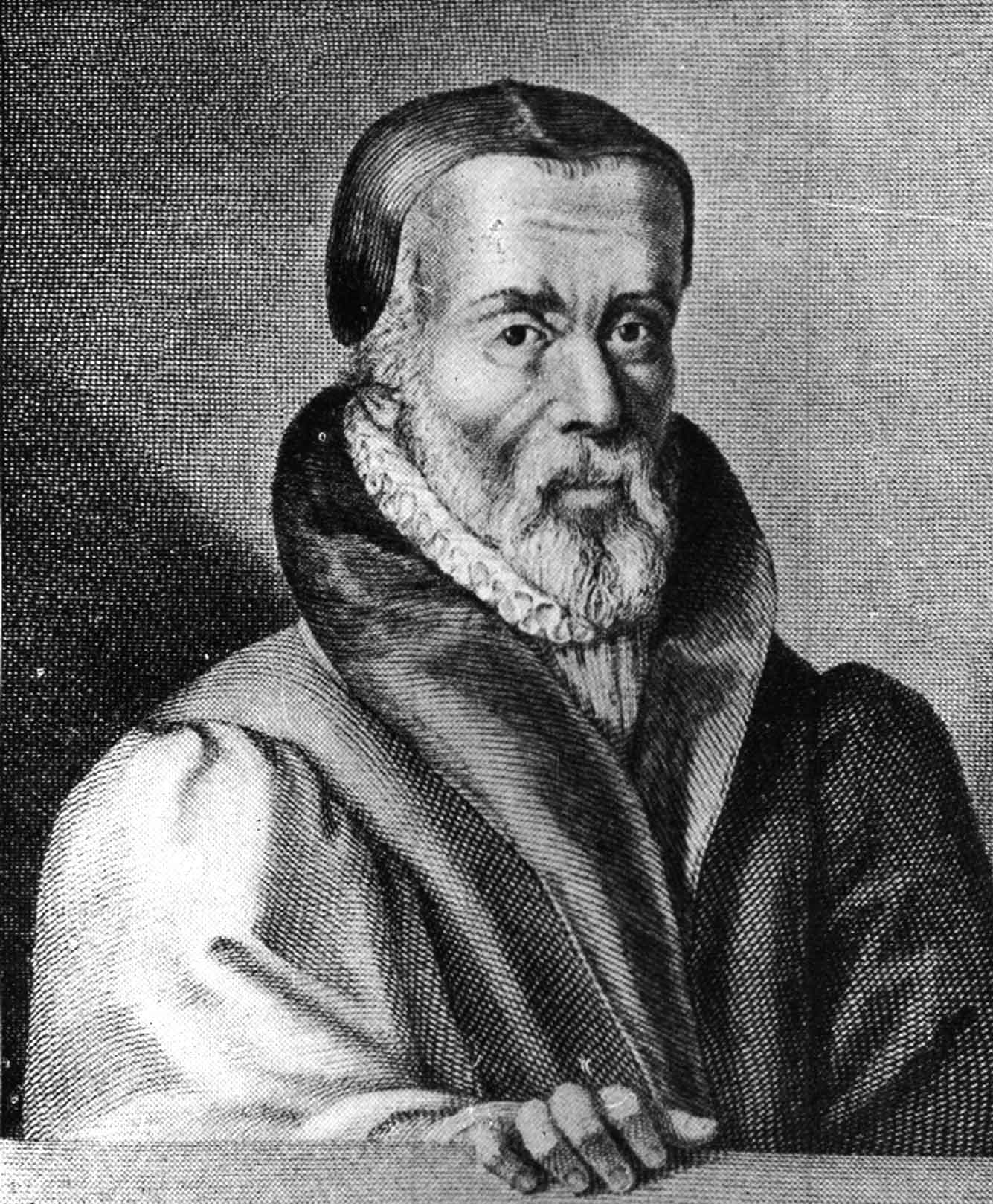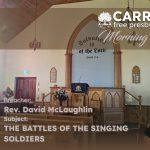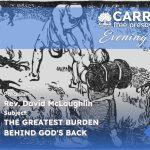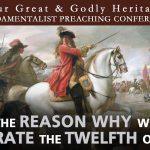Date: SUN 7:00pm 6th July 2025
Preacher: Rev. David McLaughlin
Bible Reference: Hebrews 11:33-34
33 Who through faith subdued kingdoms, wrought righteousness, obtained promises, stopped the mouths of lions, 34 Quenched the violence of fire, escaped the edge of the sword, out of weakness were made strong, waxed valiant in fight, turned to flight the armies of the aliens.
Sermon Summary of King Willim’s Texts
The sermon, delivered with a focus on the historical and spiritual significance of King William III, Prince of Orange, draws from four key Bible passages: Hebrews 11:33, Romans 8:31, Isaiah 43:2, and 2 Samuel 23:1-4. These passages, referred to as “King William’s texts,” are used to frame a message celebrating the 335th anniversary of the Battle of the Boyne, a pivotal event in Protestant history, and to draw spiritual lessons for contemporary believers. The sermon is structured around five key themes: King William’s family tree, his timeline, his focused task, his triumph, and his final trip.
1. King William and His Family Tree (2 Samuel 23:1-4)
The sermon begins by exploring King William III’s royal lineage. Born on 4 November 1650 in The Hague, Dutch Republic, William Henry was the only child of Mary, Princess Royal, and William II, Prince of Orange. His mother was the daughter of King Charles I, linking him to the English monarchy. Tragically, his father died of smallpox ten days before his birth, and his mother passed away when he was ten, leaving him an orphan. The passage from 2 Samuel 23, read at his baptism and coronation, underscores the divine call for just leadership, reflecting William’s role as a godly ruler. The sermon draws a spiritual parallel, urging listeners to consider their place in a greater royal family through faith in Jesus Christ, as described in John 1:12, where believers become children of God through spiritual rebirth.
2. King William and His Familiar Timeline
The preacher clarifies a common misconception: the Battle of the Boyne occurred on 1 July 1690, not 12 July. The shift to the 12th in commemorations stems from two factors: the adoption of the Gregorian calendar in 1752, which adjusted dates by 11 days, and the significance of the Battle of Aughrim on 12 July 1691, a more decisive victory in the Williamite Wars. The sermon highlights the importance of remembering historical dates and draws a parallel to personal spiritual milestones, asking listeners to recall the moment they trusted Christ for salvation, likening it to a victory over sin’s tyranny.
3. King William and His Focused Task (Hebrews 11:33, Isaiah 43:2)
King William’s brief 12-day campaign in Ireland in 1690 is detailed, from his landing at Carrickfergus on 14 June to the Battle of the Boyne on 1 July. His commitment to faith is evident in his attendance at worship in Belfast’s St George’s Parish Church on 15 June, where Hebrews 11:33 and Isaiah 43:2 were preached, offering comfort that God would be with him through trials. The sermon reflects on the historical context, noting the 1641 Irish Rebellion, described as a “Protestant Holocaust,” where thousands of Protestants were killed. William’s victory at the Boyne secured civil and religious liberties, including freedom of speech, worship, and assembly, which the preacher argues are under threat today. Listeners are encouraged to cherish these freedoms and trust in Christ for spiritual deliverance.
4. King William and His Famous Triumph (Romans 8:31)
The Battle of the Boyne is presented as William’s greatest triumph, where his strategic leadership and faith in God’s support (Romans 8:31, “If God be for us, who can be against us?”) led to victory over King James II. The sermon contrasts this with the ultimate triumph of Jesus Christ on the cross at Calvary, described as the greatest battle in history, where Christ defeated sin, death, and the devil. Listeners are urged to seek Christ as their “greater deliverer” from the penalty and power of sin, rather than merely celebrating historical victories.
5. King William and His Final Trip
The sermon concludes with William’s unexpected death in 1702 at age 51, following a fall from his horse during a hunting trip at Hampton Court, which led to pneumonia. His sudden death underscores the fragility of life, as illustrated by Proverbs 27:1, “Boast not thyself of tomorrow; for thou knowest not what a day may bring forth.” Contemporary tragedies, such as a fatal car accident in Donegal and a flash flood in Texas, are cited to reinforce the unpredictability of death. The preacher points to the cross—referred to as “Peter’s tree” (1 Peter 2:24)—as the place of salvation, urging listeners to trust in Christ to be ready for eternity.
Spiritual Application
Throughout, the sermon intertwines historical reflection with a call to faith. King William is portrayed as a godly leader whose faith and actions secured freedoms still enjoyed today. However, the preacher emphasises that true deliverance comes through Jesus Christ, encouraging listeners to reflect on their spiritual state, trust in Christ, and prepare for the unpredictability of life and death. The message concludes with an invitation to seek pastoral guidance and a prayer for God’s blessing on the gospel message.
Subscribe to the podcast here:
Spotify Podcasts | Apple Podcasts | Pocket Casts
Email | RSS | more information here



